The Rohingya people are a stateless Muslim minority from Myanmar. After being targeted by violence in 2017, the Rohingya were forced to flee their homes.
They walked for days through jungles and mountains or braved dangerous sea voyages across the Bay of Bengal. In just two months, more than half a million people crossed the border to Cox’s Bazar, Bangladesh, seeking refuge.
The vast majority of Rohingya refugees in Cox’s Bazar are women and children.
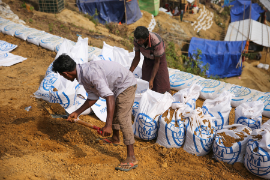
773,000 Rohingya people have arrived in Cox’s Bazar since 2017.
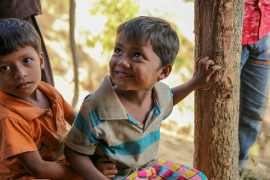
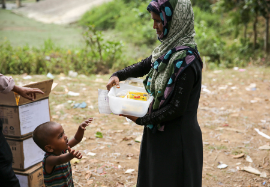
Many Rohingya refugees face starvation, homelessness, and injury.
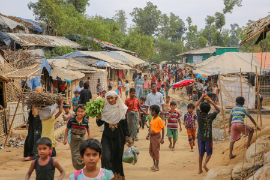
1.4 million People need humanitarian assistance.
IOM Bangladesh works to provide Rohingya refugees with emergency shelters, expand psychosocial support services to those affected by crisis, and promote access to sustainable livelihoods.
In 2023, IOM will continue its comprehensive humanitarian support for lifesaving assistance based on community feedback. IOM’s overarching priorities include the dignity, safety, and protection of the Rohingya and the provision of quality services across a comprehensive set of sectors. IOM is also committed to continue supporting the most vulnerable host community members and mitigating the impact of the refugee influx on the environment through integrated and environmentally responsible programmes.
“Under the leadership of the Government of Bangladesh, we will continue to work closely with our partners and uphold our commitment to safeguard the well-being and dignity of both Rohingya refugees in Bangladesh and their host communities.”
– António Vitorino, Former IOM Director General.
Your support helps IOM address the following community needs:
● Water Sanitation and Hygiene
● Improved Health Access
● Mental Health and Psychosocial Support
● Safe Shelters
● General Protection and Counter-Trafficking
● Prevention of Gender-Based Violence
● Disaster Risk Management
● Livelihoods and Social Cohesion
● Safe Access to Fuel and Energy
● Child Protection
USA for IOM supports the Rohingya Cultural Memory Center (RCMC), a community space, digital archive, and international touring exhibition that documents the heritage of the Rohingya people.
The collection combines objects of tangible and intangible heritage, ranging from traditional architectural models to embroidery, pottery, basketry, woodwork, visual arts, music, storytelling, poetry, and much more.
The RCMC provides the displaced Rohingya community with the tools and platform to tell their own story and promotes refugees mental and emotional wellbeing through art therapy.
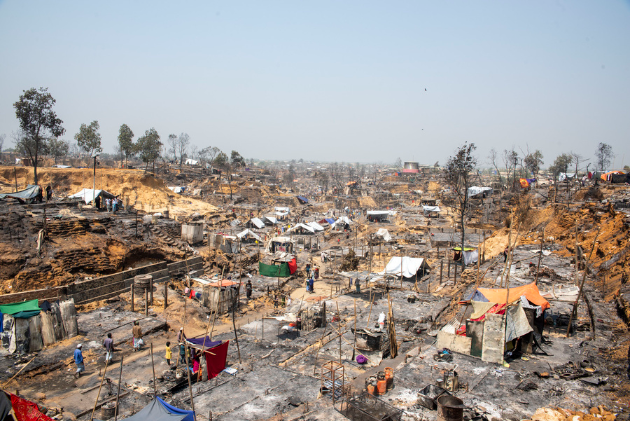
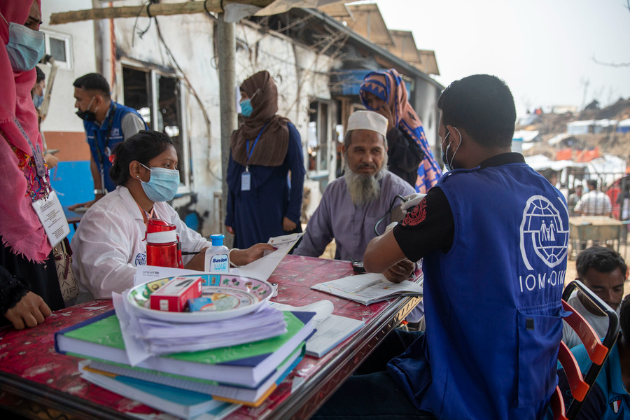
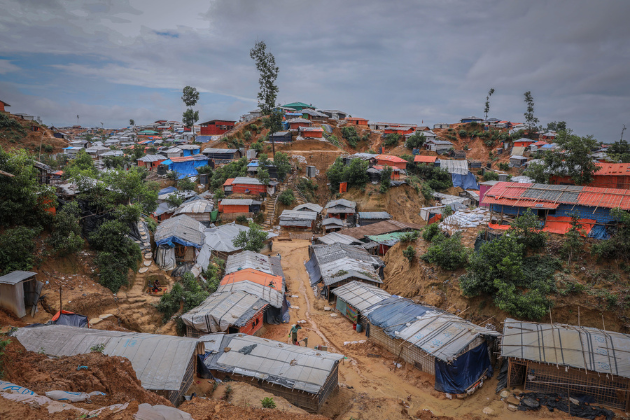

USA for IOM is the International Organization for Migration (IOM)’s nonprofit partner in the United States. | EIN 52-1525929
1752 N St NW Suite #600
Washington, D.C. 20036
For any inquiries please email us at info@usaforiom.org
© 2025 USAforIOM